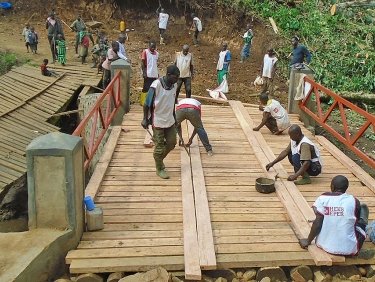For decades now the people of North Kivu Province in the Democratic Republic of the Congo have been enduring armed conflicts associated mainly with illegal mining, against a backdrop of political and ethnic tensions. The resurgence of the M23 rebel group in 2022 caused an escalation of fighting with the local ethnic-based armed groups and national Congolese army in Eastern North-Kivu. The violence is forcing ever more families to flee their villages. The situation of civilians has thus become increasingly critical: displacement exposes them to diseases and natural disasters, but they are also targets of abuse, often losing the few resources they had. It is difficult to alleviate the plight of these people, as the regions concerned are hard to reach. Delivering humanitarian aid is a major challenge. The condition of access roads is such that they are impassable. Transportation to these remote regions is therefore impossible. Yet their populations are in urgent need of food, shelter as well as medical attention, access to drinking water and sanitary facilities. The high proportion of women and children amongst the displaced population also highlights the need for protection, as they are more exposed to abuse.
Local economy in ruins
The main factors behind the collapse of the local economy are the poor state of the major transport routes, the volatile security situation that limits and makes travel dangerous, and the inability to market local produce. This situation has triggered a massive surge in crime, forced recruitment of children, young people and adults into armed groups, as well as forced labour and the illegal collection of taxes.
